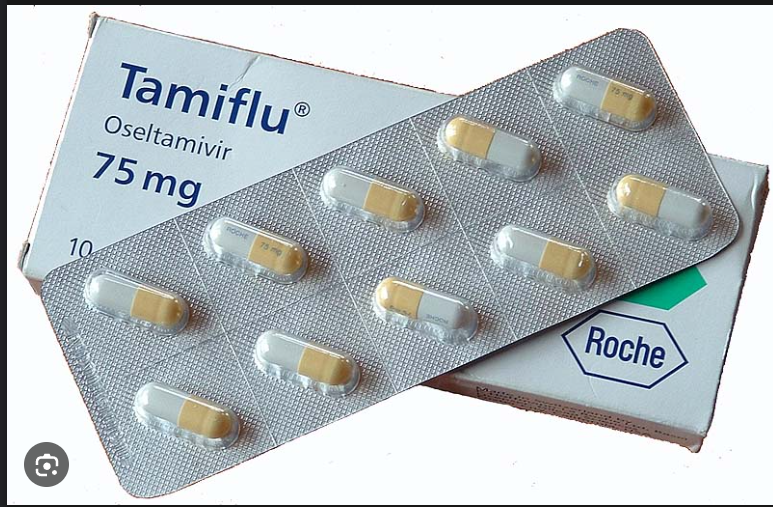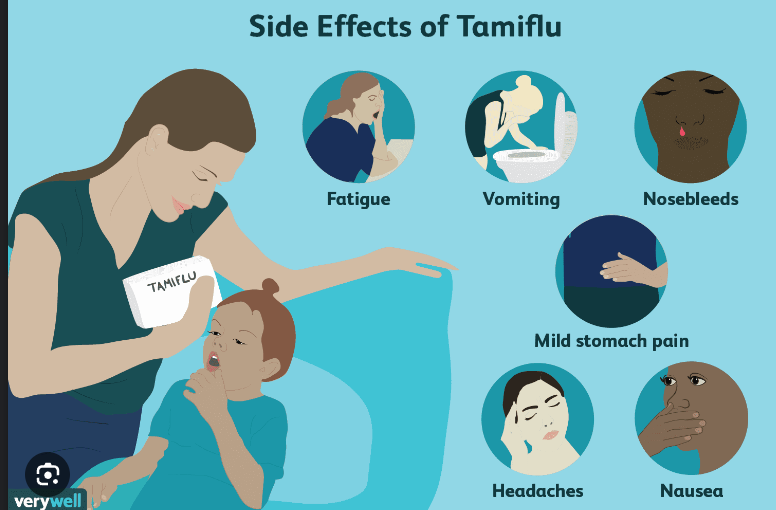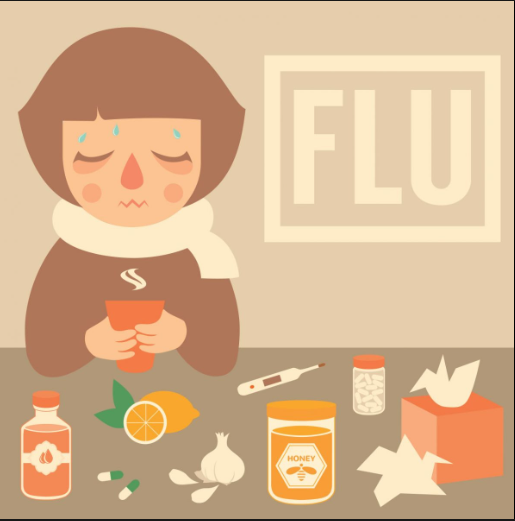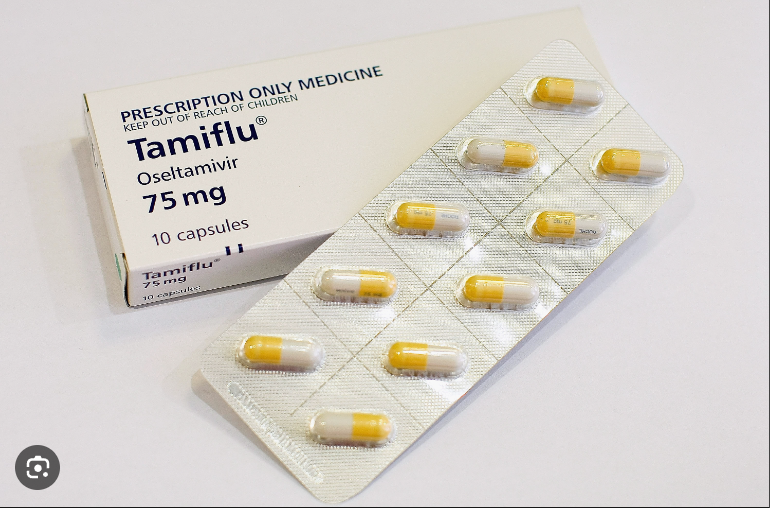Children stricken with influenza aren’t receiving the flu-busting antiviral drug Tamiflu, even though it’s recommended for them, a new study says.
Researchers report online Nov. 13 in the journal Pediatrics that three out of five children infected with the flu are not prescribed Tamiflu. In a press release from Vanderbilt University, lead researcher Dr. James Antoon, an assistant professor of pediatrics and hospital medicine at Monroe Carell Jr. Children’s Hospital, stated, “We found that young children, less than 5 years old, and especially those 2 years old and younger, are undertreated for influenza.”

tamiflu
Also read-Unleashing The Power Of Superfoods: A Shield Against Stroke
“We noted that about 40% of children were treated with an antiviral, when guidelines recommend all of them be treated,” Antoon added. “It’s important to note that we found low rates of antiviral use in all age groups.”
Tamiflu is the only oral antiviral medication approved for use in children under the age of 5.
For this study, researchers examined nine years of outpatient and emergency room prescription claims for patients under 18 in a data pool from all 50 states.
Researchers also found that the use of Tamiflu in children with flu varies widely across the country. There was a three- to twenty-fold difference in the rate of Tamifu use based on geographic region, and this variance was not explained by differences in the incidence of flu.
“These findings highlight opportunities for improvement in the prevention and treatment of influenza, especially in the most vulnerable children,” Antoon said.

Kids might not be getting Tamiflu because people aren’t aware of the national guidelines recommending its use, are concerned about adverse drug effects, or don’t think it will work, Antoon and his colleagues speculated.
These results highlight the need for better management of the flu in child patients, researchers concluded.
“Treatment of children in the outpatient setting has been reported to decrease symptom duration, household transmission, antibiotic use, and influenza-associated complications like ear infections,” Antoon said.
Children and flu antiviral drugs
Antiviral Drugs
While getting an influenza (flu) vaccine each year is recommended by the CDC as the first and most important step in protecting against flu, there are also drugs that can treat flu illness. These “flu antiviral drugs” are an important treatment option for children with suspected or confirmed flu.

Antiviral drugs for children come in the form of pills, liquids, inhaled powders, or intravenous (IV) solutions. They fight the flu by keeping flu viruses from reproducing in the body. Antiviral drugs must be prescribed by a health care provider; they are not available over-the-counter. For treatment, flu antiviral drugs should ideally be started within two days after becoming sick, but children can still benefit when antiviral treatment is started two or more days after becoming sick. Antiviral drugs are especially important for children who are at increased risk for flu complications or who are hospitalized If a child is sick with the flu, antiviral drugs offer a safe and effective treatment option.
Flu antiviral drugs only work against influenza viruses; they will not help against other viruses that may cause illness symptoms similar to flu.
Benefits from antiviral treatment of influenza
Antiviral medications for the flu can reduce the severity of symptoms and shorten the illness’s duration. Antiviral medications are most effective when taken within two days of the onset of symptoms. It has also been demonstrated that treating the flu early with antiviral medications lowers the risk of ear infections and the requirement for antibiotic treatment in kids aged one to twelve. Antiviral medication treatment may also lessen the risk of more severe flu-related complications, such as pneumonia and hospital stays. Research on adults and kids demonstrates that hospitalized patients’ care can help avoid respiratory failure and death.

Antiviral medications are advised by the CDC and the American Academy of Pediatrics (AAP) to treat confirmed or suspected flu cases as soon as possible in children who have a severe, complex, or progressive illness or who are hospitalized with confirmed or suspected flu. It is also advised that children who have the flu or are suspected of having it start antiviral treatment right away if they have a higher risk of developing serious flu-related complications. Youngsters under the age of five (particularly those under two years old) and children of any age with specific chronic health conditions, such as asthma, diabetes, heart disease, or lung disease, are more likely to experience complications from the flu.
Antiviral Drugs approved for use in children
There are four flu antiviral drugs approved by the U.S. Food and Drug Administration (FDA) for use in the United States that are recommended by the CDC for use in children this flu season:

- Oseltamivir (available as a generic version or under the trade name Tamiflu®) is approved for the treatment of flu in children 14 days old and older. Oral oseltamivir comes in the form of pills and liquids. Although not part of the FDA-approved indications, use of oral oseltamivir for treatment of flu in infants younger than 14 days old
- Zanamivir (trade name Relenza®) is approved for the treatment of flu in children 7 years of age and older. It is not recommended for use in children with underlying respiratory diseases, including those with asthma and other chronic lung diseases. Inhaled zanamivir is given via a special inhaler (Diskhaler®).
- Peramivir (trade name Rapivab®) is given intravenously and is recommended for use in children 6 months and older.
Baloxavir (trade name Xofluza®) is a pill that is given as a single dose by mouth and is approved for early treatment of flu in children aged 5 to less than 12 years who do not have any chronic medical conditions, and for all children aged 12 and older.
Also read-Building Muscle: The Best Foods For Building Muscle And For Healthy Body And Healthy Life
images source: Google
Disclaimer: The opinions and suggestions expressed in this article are solely those of the individual analysts. These are not the opinions of HNN. For more, please consult with your doctor




































